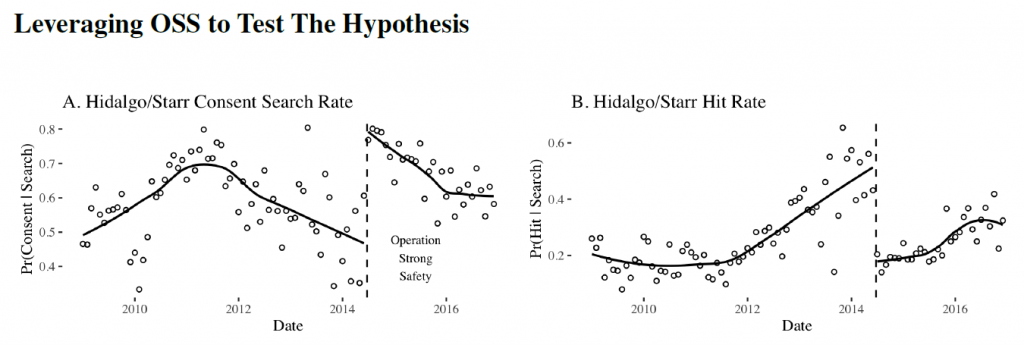Coercive Consent: The Practical Efficiency and Normative Efficacy of Police Discretion
- November 5, 2021
- Megan Dias, Derek A. Epp, Marcel Roman, and Hannah Walker
Prior research demonstrates discretionary policing engenders unnecessary intrusions in the lives of civilians without a commensurate increase in public safety.
We explain the intrusiveness of traffic stop policing by analyzing the consequences of using driver consent as a basis for initializing a traffic stop-and-search relative to probable cause, a constitutionally constrained justification.
We demonstrate reliance on consent searches is associated with a substantial reduction in the recovery of contraband without a commensurate increase in public safety using data from 24 police agencies. We also provide plausibly causal evidence on the effect of shifting toward a greater reliance on consent searches by examining the consequences of a Texas Highway Patrol policy that suddenly increased the consent search rate in two South Texas counties.
Leveraging daily stop-and-search data and a regression discontinuity-in-time design, we show the contraband recovery rate discontinuously decreases when the consent search rate discontinuously increases. These findings suggest reform efforts should constrain the use of consent searches to reduce the rate of unnecessary and ineffective policing.









